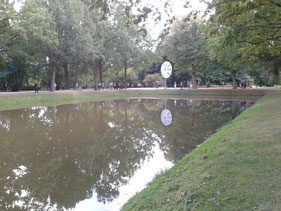
What a joy: the first e-booklet open access is online and also stored, archived and offered by DNB, the German National Library:
Social Informatics Experience:
Learning about people and computers
ISBN 978-3-947287-14-7 | 2023
eBook: 150 pages
Open Access: PDF via Weidenborn Verlag ...
and at DNB: https://d-nb.info/1291579583/
Thank you, dear colleagues and ...
Acknowledgements
My first contact with social informatics took place in Berlin on a conference some fifteen years ago. A colleague after my talk: “Christa, do you know what you are doing in your research and in the way you teach and manage your research group?” – “I hope so. What do you mean?” – “It is social informatics. I think the work of Rob Kling could be useful for you. I will send you some references.” He did and he was right. Our work in the area of health informatics and the relationships and interactions of people and technology at Aachen University between 2002 and 2007 was social informatics.
So my Thank You goes to this and many other colleagues, their inspiration, their encouragement and their cooperation and support.
To name just a few, these are Oliver Linssen, the colleague who raised my awareness for social informatics; Cord Spreckelsen, coteacher and a wonderful scientist; Alexander Volland, networker par excellence; and Zdenek Smutny: social informatics in R&D at its best. Of prime importance are the students. Thank you for being such rigorous critics – always with a good sense of humour, offering so many ideas and insights and working so hard (mostly, off course). And thank you, G & M: you taught me how to learn.
Christa Weßel – May 2023 on board of SYC
(see the book Refugium)
[ebook Social Informatics Experience 2023, p 118]
Abstract
When did the digital era start? With the world wide web and the internet during the 1980ies and 1990ies? Earlier, with the astronauts and the men on the moon? Social Informatics (SI) has some answers and continues to explore, to develop and to evaluate. People who do social informatics come from disciplines such as sociology, psychology, philosophy, anthropology, historical sciences, economics, law and – of course – computer sciences. How can students learn about SI? ... and what?
In 2017 and 2018 two groups of students and a teacher performed eight workshops:
1. Getting started: Social net and electronic media.
2. Exploration and evaluation: What do the users need?
3. Internationalization and globalization: Life is a net.
4. Product management and ethics: The art of balance between the technically feasible and social consequences.
5. Life world and work world: In fact I live while I work.
6. Hackathon: Let's work … and have fun.
7. Digital Dexterity and Internet of Things: About handling the new.
8. Synopsis: It's all about communication.
This booklet contains some details and a case study, that investigated the design, implementation and evaluation of the workshop series. Written for teachers, students, managers and other stakeholders in the world of people and computers, it is intended as an example and inspiration how to learn, teach and do social informatics at universities, in schools and in continued education.
[ebook Social Informatics Experience 2023, p 150]
Enjoy
Christa Weßel - Friday, 02 June 2023
blog sections social informatics and writing & publishing
< Existenzgründung: gewusst wie today Vibes in Bremen >
